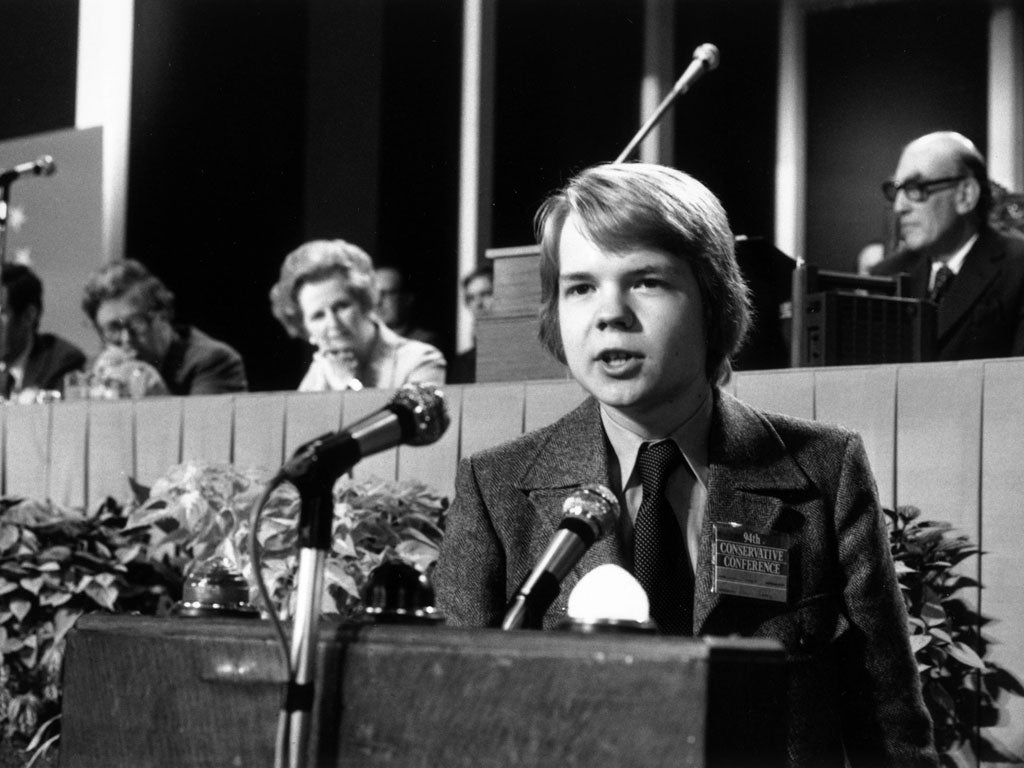Should 16-year-olds have the vote?
As Scottish 16 and 17-year-olds win the right to vote on Scottish independence, should the Government lower the voting age across the UK? Have your say below

Sixteen and seventeen-year-olds are set to get the vote in the referendum on Scottish independence. South of the border and the Lib Dems are in favour of extending the franchise down from eighteen, and Labour's children spokeswoman wants the pledge to be in their next election manifesto. Conservatives still seem lukewarm on the idea and Labour's Lord Foulkes of Cumnock (hard to believe that a Lord Foulkes of Cumnock could be out of touch with 16-year-olds) has questioned the financial cost of the changes, a nice throwback to ghosts of those £250 million AV counting systems that helped put pay to Britain's last attempt at progressive electoral reform
That sixteen and seventeen-year-olds should get the vote should go without saying. What better way of instilling political values in minds that are still formative? Depending when elections fall, currently a person could be towards their mid-twenties before getting a chance to vote in a general election. The most obvious justifications are at the heart of the argument advanced by the Votes at 16 campaign; a sixteen year old can choose to fight in the army, get married, and take on the biggest responsibility in anyone's life by becoming a parent. That they can't also vote for the government that represents them seems more than a little unfair.
What really frames the argument, however, is debunking the ideas put forward against the changes. Often cited is that 16-year-olds don't pay tax, which as arguments go neglects the massive amounts of taxation paid by everyone in the UK as a result of bias towards indirect taxes like VAT (around £80billion a year). Proponents of the tax idea neglect to mention the 25 per cent of 16 year olds who leave compulsory education to enter the worlds of work and income tax, and nor do they mention those over the age of 18 but under the earning threshold for income tax, who are hopefully not about to be denied the vote.
Allied to this idea is the notion that young people have less of a 'stake' in society, when you could well argue that the opposite is true; given that younger people are going to be living in society for the longest amount of time, it's not unreasonable to expect a say in how things are run. If we're going to start picking apart what stake people living in Britain do or don't have, why not disqualify people from voting at the age of 74 when - by average life expectancy - they will only be sticking around the country for another five years. We might also want to eject those voters who become infirm with age.
A greater source of humour are the vague allusions to ideas that young brains are not yet formed in a way that is suited to rational decision-making processes such as voting. Samuel Taylor Coleridge, Amadeus Mozart and Ludwig Wittgenstein could no doubt vouch for this along with any number of child prodigies, John Stuart Mill studied scholastic philosophy at the age of 12 but that cross in a box stuff would certainly be a step too far. The not very complicated truth is that voting is at the same time an exercise of a right and a demonstration of readiness for that right. If you take an interest in society, form a political preference, and then get up to register that democratic choice at a polling station then you are at once voting but also making it quite clear that you're responsible enough to vote. The hypothetical hoodied hoodlum the Tories might see as an archetypal sixteen year old is unfortunately not likely to be troubling the polling station with his vote, and if he were then society would be a better and not a worse place for it.
Perhaps the most idiotic thing about any reluctance to lower the voting age is the assumption that our current electoral system makes sense. Even if 16-year-old voters were an absurd notion (and it isn't), it would be no more absurd than the Lib Dems increasing their share of the vote by 1 per cent in 2010, only to go and lose five seats. It's no more absurd than the Mayor of Londoner being voted for by only about 15 per cent of Londoners, and it's no more absurd than the fact that turnout in a mayoral election can fall below 40 per cent and not trigger a referendum or even so much as a debate on just what staggeringly little faith or interest people have in our politics. Nationwide, over a third of potential voters just don't bother, and given that it seems more than a little unfair to deny that right to young people who might actually want to make use of it.
Of course a component of Tory reticence will be the worry that young people won't vote for them, although this didn't prove true when the voting age went from 21 to 18, and in 1970 the electorate still threw out the Labour government that had made the changes. We have to let the young, irrational non-stakeholding minds into our democracy, they're not born of any political colour, and a party with faith in its message should be confident of its ability to win votes, regardless of the number of candles on a birthday cake.

Join our commenting forum
Join thought-provoking conversations, follow other Independent readers and see their replies